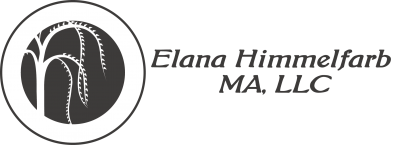Elana’s Clinical Style and Philosophy
Transition Work
Transitions mark significant times when we face choices and make decisions that will guide the course of our lives. Whether driven by our own internal desire for change or by external forces that push us to a critical life choice point, times of transition are stressful. Standing at the crossroads can elicit a tremendous mix of feelings ranging from excitement to anxiety to confusion to overwhelm which often causes people to doubt themselves and their ability to make good decisions that will result in the outcomes they desire.
For individuals with Autism Spectrum Disorders or social-emotional challenges, the transition process is rife with difficulty. My goal in individualized work is to guide these special-needs individuals and their families through their transitional process in a comprehensive, step-wise and strategic manner that keeps anxiety at bay, infuses optimism, combines realism with dreaming big, and opens up new avenues of options and possibilities. My goal in consulting with educational programs and schools is to equip faculty and staff with the tools, knowledge and awareness to design viable transition plans and successfully facilitate their students as they transition from their programs.
My approach to Transition work combines 4 major approaches, each tailored to the needs of the individual:
-
A Humanistic and person-centered approach to self-exploration and reflection
-
A Neurodevelopmental assessment of strengths, weaknesses, interests & capabilities
-
An experiential, action-oriented approach to self-assessment and decision-making
-
An emphasis on Mindfulness techniques as a means to increase self-awareness and improve strategic thinking and problem-solving skills
With all of my clients and in my trainings I also place great emphasis on techniques which build and reinforce resiliency, emotion regulation, humor, creative expression and adaptability ~ all vital ingredients for attaining the optimism, empowerment, and motivation needed to make successful and lasting life changes.
Major Influences
I operate from a Phenomenological perspective, an approach to examination and understanding of an individual through their own first-person experience and the ways in which their perspectives shape their thoughts, emotions and behaviors. It is by looking at the world, others and the self through each of my clients’ individual perspectives that I believe I can most accurately identify the places where they get stuck in negative thought patterning, destructive emotions, and chronic maladaptive behaviors. This process includes reflection, feedback, dialogue and other techniques aimed toward reflection and self-examination. For Educators and Clinicians this approach offers a new and deeply effective way to conceptualize and support their students.
From a Neurodevelopmental perspective, I evaluate my client’s emotional, cognitive, language and sensory processing systems to assess strengths and challenges and identify areas to be capitalized on, areas with growth potential, and vulnerable areas where remediation and support are needed. Attention is also allocated towards identifying the role each of the following constructs play in one’s global functioning: Attention, Memory, Social Cognition, Temporal-Sequential Ordering, Visual-Spatial Ordering and Neuromotor Function. In order to effect change, an individual must be met at their developmental level. With Educators and Clinicians, I guide them through the process so they can build neurodevelopment profiles and how to use them as a valuable tool in planning, goal setting, raising student self-awareness, course placement, strategies and accommodations, social-emotional support and transition planning and implementation.
Elana’s approach places great emphasis on the following:
-
The core capacities of Regulation, Engagement & Reciprocity (DIR/Floortime)
-
Emotions and Emotional awareness
-
Resiliency (Sensory, Cognitive, Emotional, Social, Physical
-
Mindset and Mindfulness

